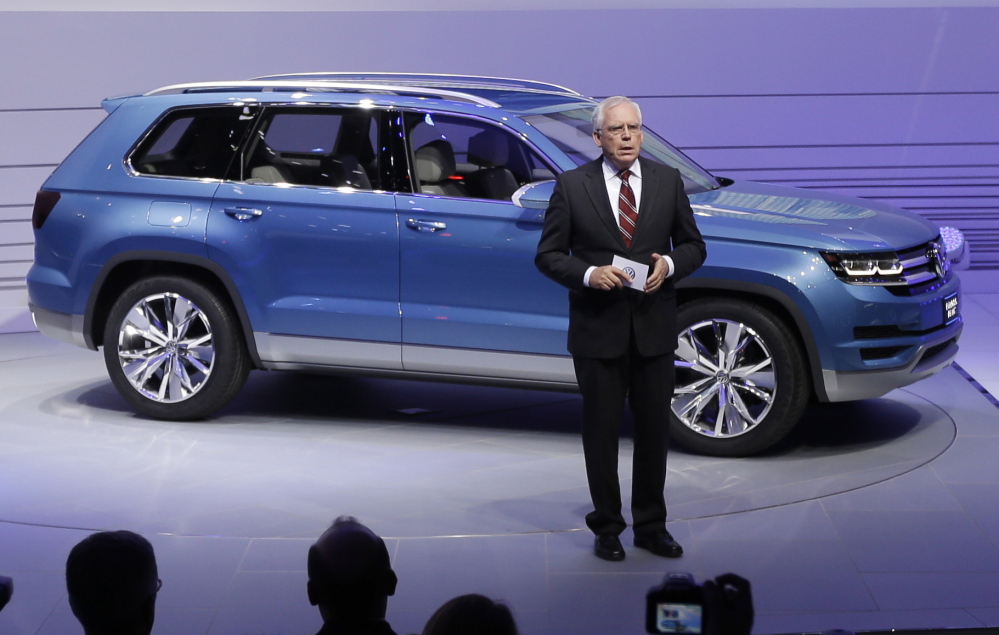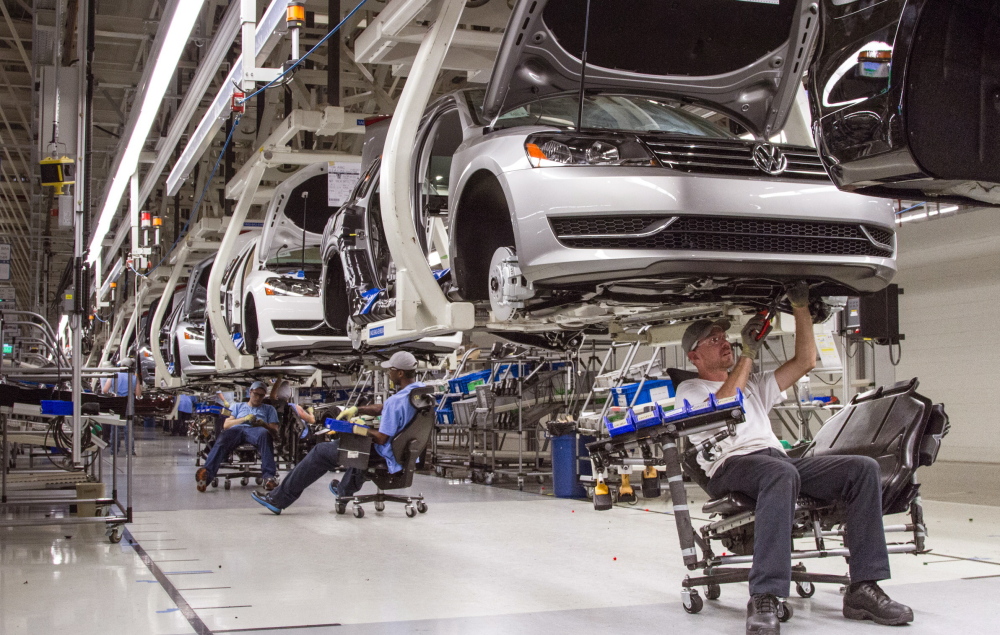SOUTHFIELD, Michigan — When Adam Gilgis leased a Volkswagen GTI this month, he had one goal: a low monthly payment.
“We pay $320, which is perfect,” said the 35-year-old Chicago lawyer. “If we finance the car, we’re paying thousands of dollars more over the course of several years.”
Auto leasing is back in a big way, as automakers including Volkswagen and General Motors pull back on discounts and rebates and entice Americans with ads promising cheap leases instead. So far this year, leases have accounted for about 27.7 percent of new-auto sales, according to Edmunds.com, the highest rate in years. Buyers like Gilgis shun long-term loans associated with outright purchases because increasingly they see cars as smartphone-like gadgets to be upgraded every few years.
“Like an iPhone, one can get a new vehicle with all the new technology and have a similar payment as before,” said Jessica Caldwell, an analyst for auto researcher Edmunds.com.
The recent surge in leasing is helping power U.S. auto sales, which are headed for the biggest year since 2007, when 16.15 million vehicles were sold. In June, five of the top six automakers beat analysts’ sales estimates. Lenders’ willingness to offer loans that stretch as long as eight years also is boosting sales. Terms of 73 to 84 months accounted for 24.9 percent of all sales in the first quarter, according to data from data services group Experian Automotive.
Leasing was once considered tacky and financially frivolous, letting posers drive cars they could ill afford.
“Thirty years ago, if you rolled up next to someone riding in a BMW or a Porsche and you said ‘that car is leased,’ it was one of the biggest insults you could throw at someone,” said Mark Wakefield, a managing director at AlixPartners. “Now, you’d say, ‘Yeah? So, what?’ ”
Attitudes began changing in the late 1990s, when mainstream buyers began leasing family sedans from Honda and Toyota. Now, with the economy improving and the financial crisis receding in the rear-view mirror, leasing is gaining traction once again. Automakers and banks are piling on because they’re betting that a robust used-car market means leased vehicles will hold their value after they’re returned. The higher the “residual value,” the less the car depreciates during the lease and the less consumers pay per month.
Drivers often weigh the cost of leasing versus taking out a loan and buying a car. With a 20-percent down payment on a Toyota Camry SE priced at $23,740, a 60-month loan costs an average of $341 per month compared with $207 for a 36-month lease, according to a TrueCar analysis.
Non-luxury buyers are leasing at a pace not seen since the late 1990s. Advertising consultant Drew Ament and his wife leased a Kia Sorento for $450 a month for 36 months in February.
“It’s good for me knowing that the lease gives her peace of mind,” said Ament, who lives in Phoenix. “I’m a guy who will get a car and then drive it until it’s dead. I have a Chevy Silverado right now that I’ll probably have until it’s done. My wife can’t do that. So, I pretty much give her a budget each month, and if it’s under that budget, then go for it. And she gets the most for her money.”
He’d rather not have a monthly payment but considers it worthwhile to ensure his wife and children have a new, safe vehicle.
Copy the Story LinkSend questions/comments to the editors.




Success. Please wait for the page to reload. If the page does not reload within 5 seconds, please refresh the page.
Enter your email and password to access comments.
Hi, to comment on stories you must . This profile is in addition to your subscription and website login.
Already have a commenting profile? .
Invalid username/password.
Please check your email to confirm and complete your registration.
Only subscribers are eligible to post comments. Please subscribe or login first for digital access. Here’s why.
Use the form below to reset your password. When you've submitted your account email, we will send an email with a reset code.